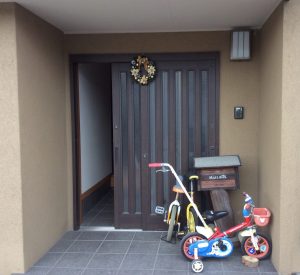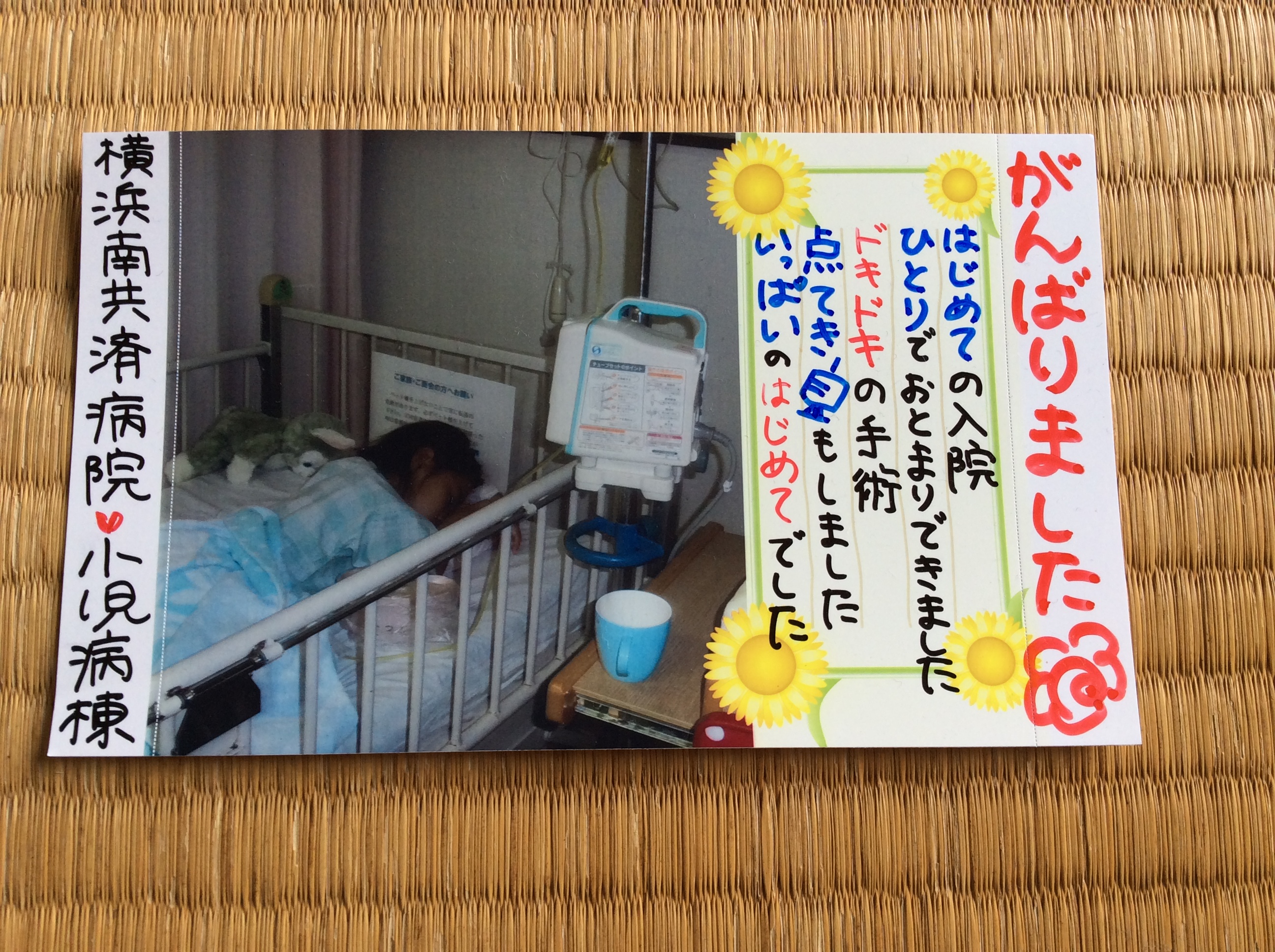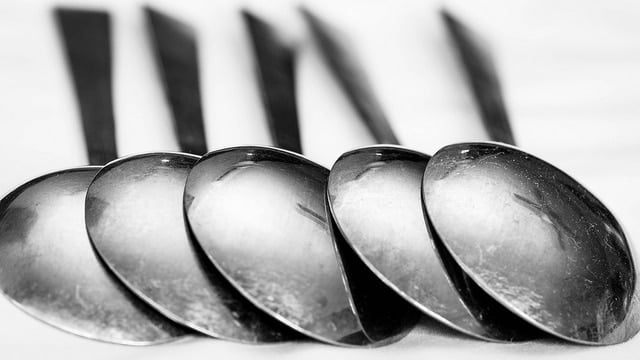
by Salma (Canada) | Feb 20, 2015 | 2015, Babies, Canada, Child Care, Communication, Discipline, Home, Homeschooling, Homeschooling, Kids, Life Lesson, Motherhood, Parenting, Preschool, Salma, School, Working Mother, World Motherhood, Younger Children

I recently left my job in a poverty law office to start a daycare and pre-school. Before opening my home, I researched every aspect of the business; at least I thought I did. Since I’d been homeschooling since forever, I thought that my new venture would be an extension of what I had been doing. What you can’t find written in pages of wisdom is how to get through the day with young children – that is something you have to experience on your own. (more…)

An Imperfect Stepford Wife is what Salma describes herself as because she simply cannot get it right. She loves decorating, travelling, parenting,learning, writing, reading and cooking, She also delights in all things mischievous, simply because it drives her hubby crazy.
Salma has 2 daughters and a baby boy. The death of her first son in 2009 was very difficult, however, after the birth of her Rainbow baby in 2010 (one day after her birthday) she has made a commitment to laugh more and channel the innocence of youth through her children. She has blogged about her loss, her pregnancy with Rainbow, and Islamic life.
After relocating to Alberta with her husband in 2011 she has found new challenges and rewards- like buying their first house, and finding a rewarding career.
Her roots are tied to Jamaica, while her hubby is from Yemen. Their routes, however, have led them to Egypt and Canada, which is most interesting because their lives are filled with cultural and language barriers. Even though she earned a degree in Criminology, Salma's true passion is Social Work. She truly appreciates the beauty of the human race. She writes critical essays on topics such as feminism and the law, cultural relativity and the role of women in Islam and "the veil".
Salma works full-time, however, she believes that unless the imagination of a child is nourished, it will go to waste. She follows the philosophy of un-schooling and always finds time to teach and explore with her children. From this stance, she pushes her children to be passionate about every aspect of life, and to strive to be life-long learners and teachers. You can read about her at Chasing Rainbow.
More Posts - Website

by Melanie Oda (Japan) | Jan 8, 2015 | 2014, Awareness, Child Care, Childhood, Culture, Domesticity, Education, Expat Life, Eye on Culture, Family, Feminism, Grandparent, Home, Husband, International, Japan, Life, Life Lesson, Living Abroad, Marriage, Me-Time, Motherhood, Multicultural, Parent Care, Parenting, Priorities, Relationships, Responsibility, School, Social Equality, Womanhood, Women's Rights, World Motherhood, Younger Children
 Gender equality has been in the news quite a bit in Japan recently, sort of, and some things have happened closer to home that have me thinking.
Gender equality has been in the news quite a bit in Japan recently, sort of, and some things have happened closer to home that have me thinking.
It started when a (female) Tokyo assembly member was heckled in a sexist way. Then Prime Minister Abe introduced some new policies to let women “shine.” (He needs to get them doing something for the economy.) He even appointed several women to cabinet posts, for about five minutes, until they were slapped back down into their places over minor scandals.
In Japan, people are talking more about issues women face but no one seems to be doing much about them.
(Lest I forget: strangely enough, the declining birth rate is treated as a “women’s issue.” I seem to remember my husband being involved, too.)
I never considered myself a feminist growing up. Some members of the evangelical, conservative community I grew up in doubtless felt “feminist” was a new version of the “F-word.”
OK, so I went to a high school with more sports options for boys than girls. And yes, girls were encouraged to take chorus and home economics instead of woodworking or mechanics. So maybe I heard men from my community refer to grown women as “broads” or “gals.” There also were some restrictions at church regarding women’s and men’s roles. But I never felt that possessing certain types of baby-making parts limited my potential.
Then I moved to Japan, where gender roles are more firmly entrenched and my way of thinking slowly changed.
As I get older, and because I am a mother, I find that I am limited in ways that I couldn’t have foreseen as a young girl.
Some people may find life here in Japan freeing. If you aspire to be a homemaker a la Martha Stewart, then your life’s work would be very much respected and appreciated here. My husband wouldn’t bat an eyelid if he came home to a messy house because I’d spent the day at a preschool mothers’ lunch. He knows that is part of the job (on the other hand, it would never occur to him to pick up the mess himself.)
If, as a woman, you have other aspirations, Japanese culture seems designed to work against you. The glass ceiling is very much in tact. On the news here you do hear issues like lack of childcare and “maternity harassment” being addressed. But what gets talked about less often is that to many women, including myself, it feels as if there’s a glass door as well.
It’s my front door.
Before a woman can even think about what is facing her out in the world, she needs to address the forces that are keeping her at home. Some of these are practical, some are logistical, some are cultural and perhaps peculiar to Japan and it’s work culture.
For me, it starts with my husband: He leaves home at 7am every morning, but I have no idea what time he will be back. Sometimes it’s 7pm. Sometimes it’s midnight. He may be in the office that day, or he may suddenly be sent to another prefecture. He’s made international trips on 12 hours notice. I cannot depend on him being home at a designated time, by no fault of his own. The idea of him taking time off with a sick child is preposterous in the extreme.
I have been lucky enough to have two job offers recently, both of which would be more or less during school hours, but neither is nearby. If a child were to get sick and need picking up, or if god-forbid there was a natural disaster (which is always in the back of your mind if you are a mother in Japan,) then my husband would be closer. I mentioned that, and he completely shot me down. Not just the idea of him picking up the kids in case of an emergency, but the idea of a job anywhere outside of cycling distance from the school.
We live in a residential neighborhood. I patch together some part-time work here and there, but it’s not like there are loads of professional opportunities in a two kilometer radius.
I suddenly felt very limited, penned in, in a way I haven’t felt before. The glass door was slamming in my face.
I don’t think I’m alone in this conundrum. Go to almost any supermarket in a residential area during the day, and you will see women in their prime working years manning the register. Many of these women have university degrees. Many have licenses and qualifications to be doing other kinds of work, but they want to stay close to home. They also need salaries to stay under $10,000 year or face a peculiar Japanese tax code and insurance system that penalizes families where both partners have incomes over that amount.
Then there are my kids: Like 2/3 of Japanese women with children under 6, I stayed home when they were small. They now completely depend on me for everything. It seems to have never entered their minds that someone else could give them a bath or help them find their missing socks, mostly because no one else has ever done anything for them. Especially when they are sick, they want only me. It was very hard when my daughter was in the hospital, both children wanting to be with me and emphatic that no one else would do.
But now my youngest is in elementary school, and I would like to just be doing more of something….else, but for me to plunge into the workforce would be a huge adjustment for my children. Is it worth the stress? Can we survive what is sure to be a painful adjustment period?
Maybe if I had more family support, it would feel less impossible but as it is, it seems like everyone is against me.
Which brings me to the final characters in this comedy, my in-laws: They say they’ll watch the kids, then they change their minds. Or something better comes up. From their point of view, this house and these people are completely my responsibility. Anything they do is extra credit.
To be honest, we’re getting to the point where my in-laws need my help more than I need theirs.
They aren’t shy about letting me know my place.
One day not too long ago, my son was playing at the park with his friends. It was getting close to homework time, so I called him and told him to come home. He said he was playing with Jiji (which is an endearing term for grandfather used in our region of Japan,) and could he play for a bit longer? Since he was out with an adult, I said okay.
The next day, I got a verbal whipping from my father-in-law over the phone, accusing me of being irresponsible, a bad mother. It took me a few minutes to understand why he was saying this, but when I got to the bottom of it, I realized my son had lied to me. He was playing with his friends when Jiji walked by and told him to go home. My son told him I wasn’t at home and said he couldn’t come back until I did. (I must have called right at this point.) “How dare you not be home in the afternoon?” said Jiji.
Putting aside that none of this nonsense was true, so what if I wasn’t home in the afternoon? Of course I wouldn’t have left the kids to wander the neighborhood like stray dogs, but why was my not physically being inside my house such an issue to him? His assumption that it was my duty to be always available to everyone took me by surprise.
I could almost hear the glass door slamming again.
There are also other barriers for women in Japan—an over active PTA for one, and a myriad of community responsibilities attended to exclusively by women for another. I imagine most women in the world encounter both the “glass door” and the “glass ceiling” in some form or another, but in Japan only one of these factors is seems to be getting much attention. Building new daycare facilities isn’t enough; the government stating goals to increase women’s participation in the workforce isn’t enough. Until we do something about that glass door, nothing will change for one of the best educated, least utilized group of women in the world.
Do you feel you are fulfilling your potential, both at work and at home? What’s the situation like in your country?
This is an original post for World Moms Blog from our writer and mother of two in Japan, Melanie Oda.
If you ask Melanie Oda where she is from, she will answer "Georgia." (Unless you ask her in Japanese. Then she will say "America.") It sounds nice, and it's a one-word answer, which is what most people expect. The truth is more complex. She moved around several small towns in the south growing up. Such is life when your father is a Southern Baptist preacher of the hellfire and brimstone variety.
She came to Japan in 2000 as an assistant language teacher, and has never managed to leave. She currently resides in Yokohama, on the outskirts of Tokyo (but please don't tell anyone she described it that way! Citizens of Yokohama have a lot of pride). No one is more surprised to find her here, married to a Japanese man and with two bilingual children (aged four and seven), than herself. And possibly her mother.
You can read more about her misadventures in Asia on her blog, HamakkoMommy.
More Posts

by Melanie Oda (Japan) | Oct 16, 2014 | 2014, Awareness, Being Thankful, Child Care, Childhood, Cultural Differences, Culture, Expat Life, Eye on Culture, Family, Health, Hospital, International, Japan, Kids, Life Balance, Life Lesson, Living Abroad, Milestones, Motherhood, Parenting, World Motherhood, Younger Children
 My 6 year-old daughter had her tonsils and adenoids out over summer vacation. She had been diagnosed with sleep apnea several months earlier and since nothing else was helping, finally I reluctantly agreed to the surgery.
My 6 year-old daughter had her tonsils and adenoids out over summer vacation. She had been diagnosed with sleep apnea several months earlier and since nothing else was helping, finally I reluctantly agreed to the surgery.
I was reluctant because hospital “culture” in Japan is very different from the US, where I am from, and because I knew I would be up against another cultural wall in regards to care for my older child.
This surgery, that requires a one-night stay in the hospital in either the US or UK (according to some quick research on my part,) here in Japan means seven nights in the hospital.
Since hospital rooms are shared, parents are not allowed to stay over night for any except the youngest of patients. Parents are expected to provide clean laundry and cutlery for the patient every day.
The children’s ward had a strict daily schedule, with times when they we’re confined to their beds (which literally had bars like a prison cell,) and times when, if they were well enough, they were allowed to use the playroom.
But absolutely under no circumstances whatever could they leave the children’s ward. And visitors under the age of 15 were not allowed in the ward.
This was a conundrum for me. I have a 9 year old son, who was on summer vacation at the time, and a husband who works 12 hour days, on a good day.
Hospital culture in Japan is strangely at odds with the wider culture in general. A high percentage of children co-sleep with their parents well into their elementary years. That is the cultural norm.
However, the hospital where my daughter had surgery, would not allow parents to spend the night with children over 2 years old.
This particular hospital allows parents of small children to stay until they fall asleep, but for my daughter, that may actually have been worse. Come lights out at 8pm, there was more crying in the children’s ward than from the nursery down the hall.
I had another child waiting at his friend’s house or at Baba’s (grandmother’s) house for me to come home, after all. My husband tried to get home from work at a decent hour, but I think he made it by 7pm once.
The day after the surgery, when my daughter was still feeling ill from the effects of the anesthesia and started bleeding from her nose, I was very grateful that she was in the hospital where I could have a professional attend to any concerns with the push of a nurse-call button.
Around Day 3, though, I could feel myself beginning to fall apart, fiber by fiber. The stress and plain old-fashioned exhaustion were starting to get to me.
My son at home was starting to feel the effects of being shuffled from place to place numerous times a day. My daughter wasn’t sleeping well and wanted to come home. I begged the doctor to discharge her a bit early, even a few hours would be great. His response was that the other child in the same room who’d had the same surgery on the same day was not recovering as well, and it would be upsetting for her if mine left earlier.
Excuse me, what? I thought, blinking several times, sure I had misheard. But I hadn’t.
On the day she was finally discharged, the nurses and staff presented her with a postcard, complete with a photo of her post-op, “to remember them by.” My first instinct was to burn it. Who would want to remember this? But I kept it, an ironic little reminder of the Japanese tendency to have “entrance” and “exit” ceremonies for everything.
I was reminded of a speech the principal of a junior high gave to the student body to announce that I was leaving: “People enter our lives, and at some point we must be parted. We should cherish each of these events.” Perhaps one day my daughter will value the card.
For now, she gets angry every time she sees it. The poor little girl has been waking up at night just “making sure I’m at home” for the past several weeks.
But now I look at the card and I feel profoundly thankful that my kids are, for the most part, healthy and happy. I don’t know how parents, who have to juggle (and it is a juggling with knives-type event, not harmless bean bags) a child’s hospitalization—along with the mundane tasks of everyday life that just keep coming, even when we are least able to deal with them—do it.
I say a little prayer for you every night, moms I do not know, and wish you strength and patience and space to breathe.
Has your child ever been hospitalized? What was it like for you, as a parent?
This is an original post to World Moms Blog from our mother of two in Japan, Melanie Oda.
The image used in this post is credited to the author.
If you ask Melanie Oda where she is from, she will answer "Georgia." (Unless you ask her in Japanese. Then she will say "America.") It sounds nice, and it's a one-word answer, which is what most people expect. The truth is more complex. She moved around several small towns in the south growing up. Such is life when your father is a Southern Baptist preacher of the hellfire and brimstone variety.
She came to Japan in 2000 as an assistant language teacher, and has never managed to leave. She currently resides in Yokohama, on the outskirts of Tokyo (but please don't tell anyone she described it that way! Citizens of Yokohama have a lot of pride). No one is more surprised to find her here, married to a Japanese man and with two bilingual children (aged four and seven), than herself. And possibly her mother.
You can read more about her misadventures in Asia on her blog, HamakkoMommy.
More Posts

by Ruth | Sep 4, 2014 | 2014, Awareness, Being Thankful, Child Care, Cooking, Cultural Differences, Domesticity, Eye on Culture, Family, Home, Inspirational, Life Balance, Life Lesson, Me-Time, Motherhood, Parenting, Ruth Wong, Singapore, Stress, Womanhood, Working Mother, World Motherhood, Younger Children
 More than a month ago, our home was always clean and tidy. There were also nice home-cooked meals (complete with soup) every evening for my family.
More than a month ago, our home was always clean and tidy. There were also nice home-cooked meals (complete with soup) every evening for my family.
Fast forward to today: dust is gathering around the house while home-cooked meals have been reduced to no more than two dishes at any one time. Soup? It would be a bonus to have that once a week.
You see, our live-in helper left us…without notice…after going back to her home town, supposedly, for a two-week break.
She didn’t come back. Didn’t send notice. Didn’t even call. I later learned from friends that this is not uncommon.
At first I was angry. Not only had we wasted money on her return ticket, she also left me stranded without a back up plan.
But as the days go by, a rhythm is slowly but surely developing. I’m beginning to experience the blessings her departure brings.
- Gone are my leisurely breakfasts, escapades to the library and social media time. But I now have greater focus on what I do.
- House chores and cooking are challenges for me but I am slowly getting the hang of things.
- While there are no set days as to when chores get done, since my work takes focus in the early part of the week, I am trying to tackle the bulk of cleaning mid-week. Strangely I sometimes find cleaning rather therapeutic.
- When it comes to cooking, I am learning to exercise creativity. One dish meals are great: simple to cook but nutritious and tasty enough for most fussy taste buds.
- When the laundry is done, he helps remove the clothes from the washing machine, grabs the pegs and passes them to me “as a set” – to quote his exact words. I wonder when he might get bored and stop helping me so I am cherishing every moment.
- Might I add that my husband has also chipped in to do his part now!
I am not sure if I will cave in and get another helper again. At the moment, I am busy but happy. I appreciate the quietness (when my son is at school) and extra space I now have, and I meant that quite literally. The best part is I get my spare room back! That is something I have been wishing for and for which I can’t be more thankful.
I know that for many moms living in other parts of the world, having live-in help is rare. Some may have cleaners come a few times a month but many families manage the bulk of cleaning and household chores alone. Here in Asia, having live-in help is common.
All of this made me really admire fellow moms who have to take care of the whole household and a few kids, not to mention those who are working from home. You are amazing. How do you do it?
Really, I mean it. How do you handle your house chores? Please share some tips! Hopefully some day, I might become an amazing mom like you, who seem to be able to do it all.
This is an original post for World Moms Blog from our blogger and live-in-help-less mother of one, Ruth Wong in Singapore.
The image used in this post is credited to clogozm. It holds a Flickr Creative Commons attribution license.

Ruth lives in Singapore, a tiny island 137 kilometres north of the equator. After graduating from university, she worked as a medical social worker for a few years before making a switch to HR and worked in various industries such as retail, banking and manufacturing. In spite of the invaluable skills and experiences she had gained during those years, she never felt truly happy or satisfied. It was only when she embarked on a journey to rediscover her strengths and passion that this part of her life was transformed. Today, Ruth is living her dreams as a writer. Ironically, she loves what she does so much that at one point, she even thought that becoming a mom would hinder her career. Thanks to her husband’s gentle persuasions, she now realises what joy she would have missed out had she not changed her mind. She is now a happy WAHM. Ruth launched MomME Circle, a resource site to support and inspire moms to create a life and business they love. She has a personal blog Mommy Café where she writes about her son's growing up and shares her interests such as food and photography.
More Posts

by Olga Mecking | Jun 2, 2014 | 2014, Awareness, Being Thankful, Child Care, Health, Kids, Life Balance, Maternal Health, Me-Time, Motherhood, Netherlands, Parenting, World Motherhood, Younger Children
 Recently, I’ve been reading about the Spoon Theory (also sometimes called the token theory). The idea is that we’re all given a certain amount of spoons (or tokens) each day—metaphorically of course–to spend on all the things that we need to get done during the day.
Recently, I’ve been reading about the Spoon Theory (also sometimes called the token theory). The idea is that we’re all given a certain amount of spoons (or tokens) each day—metaphorically of course–to spend on all the things that we need to get done during the day.
It is usually applied to explain disabilities or chronic illnesses, which often can’t be seen but still make people’s lives difficult (like Lupus, Chronic Pain or Aspbergers). But I actually think that, without dismissing the experiences of these people, the spoon theory also can be expanded to include moms.
Just think of all the things you have to do during the day, and then imagine doing them without children. You wouldn’t even have to think when you got dressed in the morning. Eating breakfast would be simple and effortless. You’d be able to get out of the house in a matter of minutes and you might even be able to get places on time.
When you’re a mom, suddenly everything takes more time. You don’t only have to make breakfast for yourself, you make it for one, two, three, or more people. Here go three spoons- and I don’t mean the ones you use to eat breakfast.
You want to get out of the house. You put your coat on, your children’s coats on. Your price in spoons depends on the amount of children you have and the season- less children cost less spoons, winter is more expensive than summer.
Whatever you do, whether you are a working mom or a SAHM, you likely will be out of spoons by the end of the day. Some days are better and you may even have a few spoons left. Some days are horrible and you run out of spoons before noon. The unexpected temper tantrum costs a spoon or three. Taking your child to the hospital because he’s sick is another five spoons.
Remember, you only get a certain amount of spoons per day and that amount is limited. You can borrow the spoons from the next day but that could be the very day your child gets sick or when she decides that from now on, she will absolutely refuse to do whatever you ask her to do.
But not all moms are given equal amounts of spoons. Some have less than others. These are the moms who have disabled children. These are single moms with two jobs and no support. These are the moms all over the world living in poverty. They struggle every day to provide the best for their children. Yes, parenting under such circumstances is definitely more spoon-costly.
But it isn’t easy even for a family without such challenges. So what can we do? Spend our spoons wisely. Prioritize.
For example, in my case, perfectly folded laundry isn’t worth a spoon but a nicely prepared dinner most definitely is. We can try to replenish our spoons by getting some me-time. We can remember to sleep. We can get help- whether it’s from family, friends or childcare.
These are the things we can do for ourselves. But there are also things we can do for others. When thinking about how to spend your spoons or tokens, please set aside a certain amount for your fellow moms. You can do it by offering support. Offer a shoulder to cry on, extend your helping hand, say encouraging words.
It may seem like spending your own precious spoons but it is really a kind of investment. Because any price is easier to pay if everyone pitches in.
But, all economic and metaphorical imagery aside, I just want to point out the obvious: motherhood is hard. Let’s be kind to ourselves. And let’s help each other out.
Of course, we don’t really need such theories to explain how hard it it so be a mom. But I thought the spoon theory is a rather good way to illustrate the challenges of motherhood.
What are you thoughts on this? Is it helpful to think of your day in terms of having a limited number of spoons (or tokens) to spend?
This is an original post to World Moms Blog from our Polish writer in the Netherlands, Olga Mecking.
The image used in this post is credited to Nicki Mannix. It holds a Flickr Creative Commons attribution license.
Olga is a Polish woman living in the Netherlands with her German husband. She is a multilingual expat mom to three trilingual children (even though, theoretically, only one is trilingual since she's old enough to speak). She loves being an expat, exploring new cultures, learning languages, cooking and raising her children. Occasionally, Olga gives trainings in intercultural communication and works as a translator. Otherwise, you can find her sharing her experiences on her blog, The European Mama. Also take a while to visit her Facebook page .
More Posts - Website
Follow Me:




by Katinka | May 12, 2014 | 2014, Adoption, Adoptive Parents, Awareness, Being Thankful, Child Care, Childhood, Communication, Cultural Differences, Family, Health, Inspirational, Mental Health, Motherhood, Parenting, Penguin and Panther, Relationships, Special Needs, Stress, World Motherhood, Younger Children
 Even before I became a mother, I had a particular wish for my future children. Looking back at several not so fond memories of my childhood, I vowed I would do everything for them to have a better one. They shouldn’t have to grow up too fast. They would not have to feel unwanted, misunderstood or worthless. I would guard their innocence and happiness like a hawk.
Even before I became a mother, I had a particular wish for my future children. Looking back at several not so fond memories of my childhood, I vowed I would do everything for them to have a better one. They shouldn’t have to grow up too fast. They would not have to feel unwanted, misunderstood or worthless. I would guard their innocence and happiness like a hawk.
The major driving force behind the different attempts of therapy I tried throughout the years, was the well-being of my (future) kids. I wouldn’t allow mistakes in motherhood.
In fact, I didn’t want them to become like me at all. Just like the mother who really tries hard not to show her child how much she is freaked out by spiders, in order not to raise a little arachnophobic like herself. My list of not-to-pass-ons was just longer: low self esteem, perfectionism, fear of failure, social clumsiness, easy overstimulation and of course CFD: ‘continuously fretting disorder’.
The first five years of motherhood, I had the impression I could accomplish all this. I actually felt like the perfect mother: patient, involved, crafty, warm. I even managed to stick to my not-to-pass-on-list. It would cost me quite some effort, but I would not interfere when my son was building a crooked tower, so he could not catch my perfectionism. Trying not to pass on perfectionism while desperately trying to be a perfect mother. It may sound absurd now, but back then, it totally made sense.
Three years ago, my perfect balance in motherhood shifted drastically. When our son turned five, we couldn’t ignore anymore that he was going to develop at a speed different from his peers. At the same time, our adopted daughter arrived, aged two and a half.
They both forced me to face my demons better than any therapy has ever done throughout the years.
My son and I, we discovered developing an intelligence and sensitivity far beyond our physical age, is a struggle we share. Where his friends will watch a grazing cow on a field trip and complain about the stench, he will likely try to understand why this mammal has four stomachs, how to measure the circumference of the pasture and how long it would take for the cow to eat all that grass. And how much dung it would have produced by then, of course. His sense of humour is still a seven year old’s.
My daughter and I, we’ve been battling childhood trauma and attachment disorder together. We cried together in the shower numerous times, holding each other fiercely. The battle has been rough. It still is. Sometimes I just can’t comfort her like I should, because I need comforting myself. But she amazes me with a resilience I just can’t manage. She might be jumping on the trampoline and singing imaginary happy-songs, while I crash on the couch to mentally recover from holding her mourning and kicking little body for over half an hour.
It has been extremely painful to see my least fond childhood memories revive in my kids.
Comforting a son that feels like an alien, desperately trying to cover up his super powers because he just wants to blend in. Reassuring a daughter that follows me around the house like a puppy because she just can’t believe she won’t be abandoned again.
Painful. Heart wrenching. And feeding the CFD by the tons.
However, I’m seeing now that our struggles do not necessarily have to be the same. Because, you know, they have me. Of course I can’t protect them from being hurt. No mother can do that for her children. It’s one of the curses of being a mother.
But as it turns out, as a ‘damaged’ mother, I might be the perfect guide for my heavy-hearted children.
I’m teaching my son first handed how to make use of his extraterrestrial powers, without a need to blend in. I’m even coaching him in failing and making mistakes without believe it’s the end of the world. I surely acknowledge how important that lesson is. He’ll get it much earlier than I did.
I’m confidently ignoring outsiders’ advice on how to deal with my daughter’s anxieties, since I recognize how she feels. When she’s grieving, I guard her like an eagle that will not allow anyone to question or mock her tears of grief. I’m determined to give her what I never got. I will make her feel loved and understood. Unconditionally.
Me, I’ve only discovered how to find happiness after a painful and lonely journey.
I intend to show my children all the short cuts.
They will have a splendid childhood.
How do you see your own childhood reflected in your children? Is it mostly warm or can it be painful as well?
This is an original post to World Moms Blog by K10K from The Penguin and The Panther.
The picture in this post is credited to the author.
If you ask her about her daytime job, Katinka will tell you all about the challenge of studying the fate of radioactive substances in the deep subsurface. Her most demanding and rewarding job however is raising four kids together with five other parents, each with their own quirks, wishes and (dis)abilities. As parenting and especially co-parenting involves a lot of letting go, she finds herself singing the theme song to Frozen over and over again, even when the kids are not even there...
More Posts



















